Calling the by-polls 'free and fair' dims hope for 2024

Awami League General Secretary Obaidul Quader has described the just-concluded by-elections to six parliamentary constituencies as "free and fair" and "a win for democracy in Bangladesh." Addressing a party meeting in Dhaka's Jatrabari, he said who won and who lost in the by-polls was not the main issue. "It was important whether the by-elections were held in a free and fair manner or not," he added. His portrayal of the by-polls tells us what kind of general election we should be expecting.
There's no surprise in the results, except one, as the ruling alliance had it all settled in terms of sharing those six seats left vacant by the BNP as part of their anti-government movement. The lone loser is from the Workers Party, an important ally of the Awami League, who lost to the nominee of Jatiya Party, another partner of the 2018 seat-sharing coalition. Workers Party nominee Yasin Ali's loss might be the result of not getting enough administrative favour as a consequence of the party chief's post-2018 criticism of some of the government policies that had embarrassed the top leadership of the alliance.
The seat-sharing arrangement was so well-designed that none of the alliance partners objected to hiring a BNP-deserter for Brahmanbaria-2 constituency. The ruling party has set a new example of mobilising the party machine behind someone whose political loyalty, as of now, remains a mystery. Because when he left his over-three-decade association with BNP, he didn't join the Awami League or any other allied parties. It's also quite remarkable that there was no rebellion within the ruling party on the issue of supporting Ukil Sattar in his re-election bid, which is quite common in the Awami League.
These by-elections are nothing more than a mere fulfilment of legal obligations, as it won't be able to bring in any change in parliamentary balance. The 11th parliament for the rest of the term will remain without any effective opposition, as the official opposition, the Jatiya Party, has the dubious record of contesting the last general election under a seat-sharing accord with the Awami League. No wonder that the ruling party's all-out support for Ukil Sattar raises some critical questions.
Many political observers believe that Awami League's real motive for getting Ukil Sattar re-elected is to entice and encourage more desertion from the BNP and show those potential defectors what kind of practical help they can expect, in the event of a poll boycott by the main opposition. Quelling internal rebellion, forcing others in the coalition to give a walkover, intimidating independents – including creating an environment where a potential challenger mysteriously disappears – and deploying the party machine in favour of an outsider are no small feat. They, however, exposed how BNP's recent resurgence has rattled the ruling party.
Reports of widespread intimidation and harassment during campaigns in all those constituencies where Awami League candidates were contesting, too, showed a lack of self-confidence, despite the fact that their main challenger, the BNP, was not in the race. Polling day scenarios were not pleasant, either. If controlling the vote centres, intrusion into booths, and voting for others by Awami League activists constitute free and fair polls, then there's every reason to think that these by-elections were truly a dress rehearsal for the upcoming general election.
There's little doubt that it was a genuine dress rehearsal for the Election Commission (EC). The suspension of the Gaibandha by-poll in October last year, the first under the current EC, somehow raised people's expectations that it would remain firm, try to regain public confidence in the electoral process, and recoup lost trust in the institution. The reasons the CEC gave for halting the Gaibandha by-poll were: "evidence of people either illegally supporting or forcing voters to cast ballots, widespread irregularities, and malpractices." The EC then concluded that the election was out of control, and that one side (or one candidate) was able to influence it. Media reports from Brahmanbaria, Bogura, and Chapainawabganj on February 1 have suggested similar widespread irregularities and malpractices. Unfortunately, things turned out to be a complete reversal of Gaibandha 2022.
It appears that after the ministers' outburst following the suspension of the Gaibandha by-poll, the EC has decided not to confront the ruling party anymore. Nothing else can explain their inaction in preventing MPs from campaigning and their failure in investigating alleged disappearances of Abu Asif Ahmed, a candidate in Brahmanbaria, and his agent. Disappearance of a contestant ahead of the polling day is unheard of in any election in the country.
A serious and fair investigation was needed to find out whether it was a deliberate and voluntary disappearance to mislead others, or a case of involuntary or enforced disappearance. In either case, the perpetrator and all others involved in such a crime should be prosecuted according to the law.
This incident also exposes inadequacies in our election laws, as the People's Representation Order, 1972, in its present form, only prescribes halting the election in case of a candidate's demise after submission of the nomination paper, but gives no relief to a possible victim of involuntary disappearance. Unless this lacuna is addressed, recurrence of such mysterious disappearances of prospective candidates in the upcoming general election cannot be ruled out.
Kamal Ahmed is an independent journalist. His Twitter handle is @ahmedka1

 For all latest news, follow The Daily Star's Google News channel.
For all latest news, follow The Daily Star's Google News channel. 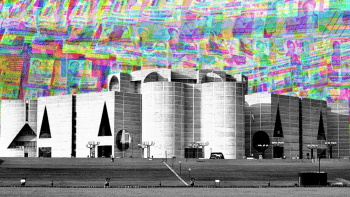
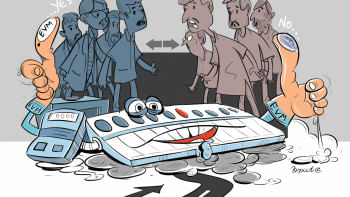
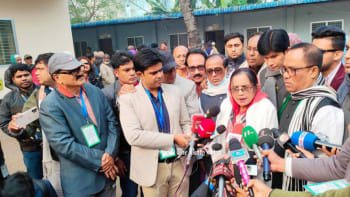



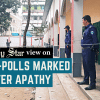
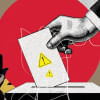




Comments